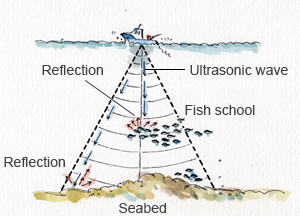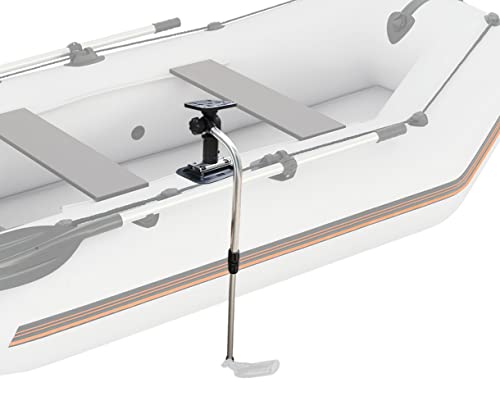A portable fish finder is a useful tool. It helps you find fish in water. Fishermen use it to save time. This tool shows fish location. You do not need to guess where the fish are. It is easy to use. Let’s learn how it works.
What is a Portable Fish Finder?
A portable fish finder is a small device. You can carry it with you. It has a screen and a sensor. The sensor goes in the water. The screen shows where the fish are. It is simple to carry. You can use it on a boat, kayak, or from the shore.
Components of a Portable Fish Finder
A portable fish finder has three main parts:
- Display Screen: This shows you the fish and the bottom of the water.
- Transducer: This part sends and receives sound waves.
- Power Source: This can be a battery or a power plug.
How Does It Work?
The fish finder uses sound waves. The transducer sends these waves into the water. The waves hit objects and return. The transducer receives the waves back. It sends the information to the display screen. The screen shows the objects as images. Fish, rocks, and plants appear on the screen. This helps you know what is under the water.
Steps to Use a Portable Fish Finder
Using a portable fish finder is simple. Follow these steps:
- Turn on the fish finder.
- Place the transducer in the water.
- Look at the display screen.
- Move the transducer to find fish.
- Read the screen to see fish locations.
Reading the Display Screen
The display screen shows many things. It can show:
- Fish: These look like arches or icons.
- Bottom: This shows the depth and type of the bottom.
- Plants: These look like wavy lines.
- Depth: This is the distance from the surface to the bottom.
Benefits of Using a Portable Fish Finder
There are many benefits. Here are a few:
- Saves time by showing fish locations.
- Easy to carry and use.
- Helps you catch more fish.
- Shows water depth and bottom type.
- Works in different water types.

Credit: www.furuno.com
Choosing the Right Fish Finder
There are many fish finders. Choose the right one for you. Consider these factors:
- Screen Size: A bigger screen is easier to read.
- Power: More power means better performance.
- Frequency: Higher frequency gives better detail.
- Portability: Make sure it is easy to carry.
- Price: Choose one that fits your budget.
Common Terms to Know
Here are some terms you should know:
- Sonar: This is the technology that uses sound waves.
- Echo: The sound wave that returns to the transducer.
- Beam: The path the sound wave travels.
- Frequency: The number of sound waves per second.
- Transducer: The part that sends and receives sound waves.
Tips for Using a Portable Fish Finder
Here are some tips:
- Always keep the transducer in the water.
- Move the transducer slowly.
- Read the manual for your fish finder.
- Check the battery before you go fishing.
- Practice using it in different waters.
Frequently Asked Questions
What Is A Portable Fish Finder?
A portable fish finder is a device that helps locate fish underwater.
How Do Portable Fish Finders Work?
They use sonar technology to detect fish and underwater structures.
Are Portable Fish Finders Accurate?
Yes, they provide accurate readings of fish location and water depth.
Can I Use A Portable Fish Finder In Saltwater?
Yes, most portable fish finders work in both saltwater and freshwater.
Conclusion
A portable fish finder is a helpful tool. It uses sound waves to find fish. It is easy to use and carry. It shows fish, bottom, and plants on the screen. Choose the right one for you. Follow the steps and tips. Happy fishing!


